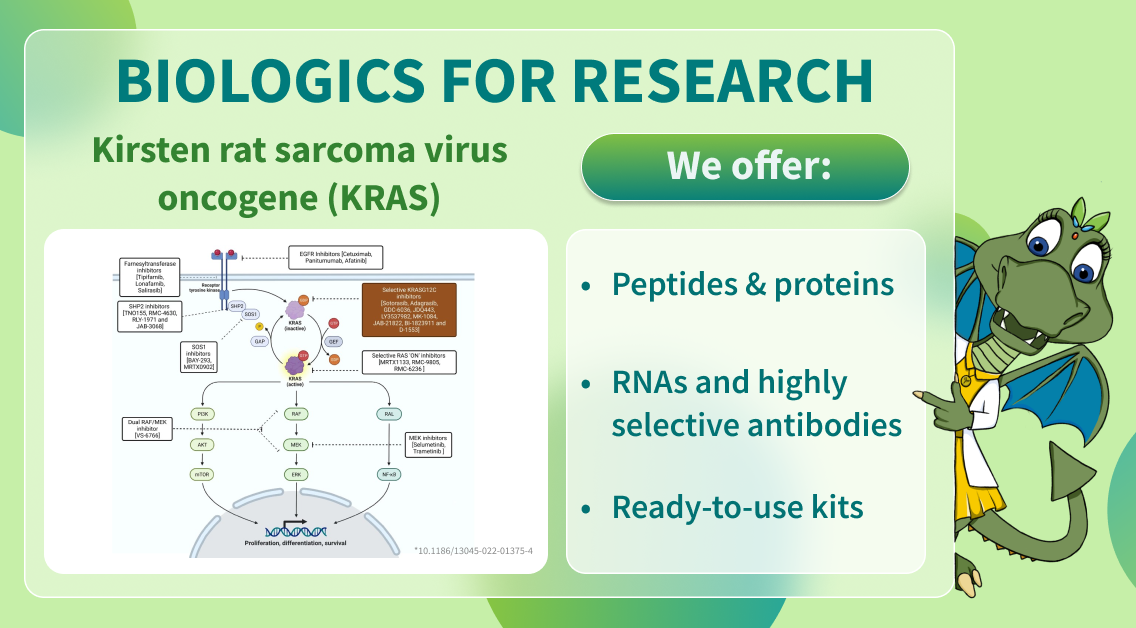We continue our series in the Biologics campaign – now it is about the Kirsten rat sarcoma virus (KRAS).
KRAS is one of the most frequently mutated oncogenes in all human cancers that is present in nearly 15% of oncology diseases. It is a membrane-bound protein detected and expressed in all human cells. KRAS mutations are associated with pancreatic ductal adenocarcinoma (PDAC), nonsmall-cell lung cancer (NSCLC), colorectal cancer (CRC), and some other highly fatal cancers. During the past four decades, the KRAS was known as a challenging or even “undruggable” therapeutic target. But recent advances in targeting KRAS with covalent inhibitors, such as sotorasib and adagrasib, show progress in some cancer treatments.
You can find more about the state-of-art of KRAS drugging here.
KRAS mutants are still a very hot target in anticancer investigations. There is an example of the development of the in vivo active KRASG12C inhibitor, that started from a reversible binder to the switch II pocket. After structure-based optimization, the warhead with the Michael acceptor was attached to the drug candidate.
More information about this fragment-based optimization you can find here.
